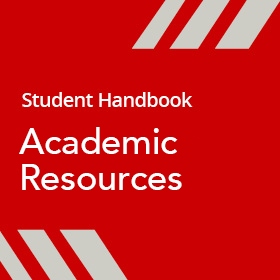Finding High-Quality Academic Resources: A Guide for Students and Scholars
Browsing the landscape of academic resources is a critical ability for both students and scholars aiming to produce qualified and impactful study. With a myriad of choices offered-- from university collections to on the internet data sources-- understanding exactly how to successfully situate and examine top quality details is crucial. This entails not only knowing where to browse however likewise exactly how to seriously examine the resources encountered. As we explore reliable strategies for recognizing and using these resources, one have to consider what requirements really specify a source's quality and integrity. The responses might reshape your technique to research study.
Comprehending Academic Resources
Recognizing scholastic sources is important for pupils and scientists aiming to navigate the large landscape of information available in academic settings. Academic sources incorporate a large range of products designed to support academic work, consisting of publications, peer-reviewed journal short articles, conference documents, theses, dissertations, and trustworthy internet sites.
These sources function as foundational devices for developing understanding and conducting research throughout different techniques. Libraries-- both physical and electronic-- are primary hubs for accessing scholastic resources, typically giving specialized data sources that feature considerable collections of scholarly works. On the internet systems, such as Google Scholar and institutional databases, additionally assist in accessibility to a wealth of info.
It is vital for people to familiarize themselves with these resources to improve their research study capacities. Comprehending the organization of academic resources, including subject-specific databases and citation styles, is important for effective details access and collection. By leveraging these sources purposefully, pupils and scientists can improve their scholastic ventures, corroborate their debates, and add meaningfully to their areas of research study. Eventually, a complete understanding of scholastic resources empowers scholars to engage seriously with existing literary works and promotes a society of informed inquiry.
Reviewing Resource Trustworthiness
In the realm of scholastic research study, assessing source reputation is extremely important to making sure the integrity and integrity of info. The reliability of a resource can substantially influence the legitimacy of the research study findings and verdicts drawn from them. An organized method to assessing resource reliability entails a number of vital requirements: authority, accuracy, objectivity, money, and coverage.

Objectivity is another vital element; trustworthy resources make every effort to present info right, enabling a well balanced point of view on the topic. The money of the source additionally matters, particularly in swiftly progressing fields, as out-of-date info might deceive or misguide. Lastly, review the protection of the resource-- does it thoroughly resolve the topic, or does it ignore significant elements?
Using Collection Data Sources
Accessing library databases is an essential part of reliable academic research study, providing a wide range of reliable and academic sources. These databases aggregate a wide variety of scholastic journals, publications, and short articles, enabling pupils and scholars to involve with rigorously vetted materials. Familiarizing oneself with the library's data source user interface is essential; users must find out to browse search features, filters, and progressed search options to optimize their research efforts.
Using keywords and Boolean operators can considerably improve search outcomes, making it possible for extra precise retrieval of relevant literature. Additionally, many library databases offer tools such as citation generators and export options, streamlining the process of compiling references.
It is also useful to check out the subject-specific data sources tailored to numerous academic fields, which frequently supply specific material not offered in general databases. Pupils need to benefit from tutorials or workshops used by curators, who can provide valuable understandings right into database functionalities and effective study methods.
Leveraging Online Academic Platforms
How can pupils properly use online scholastic systems to enhance their study capacities? On the internet scholastic systems function as invaluable devices for trainees and scholars seeking to access a wide range of info successfully - Docentra. These systems, such as Google Scholar, JSTOR, and ResearchGate, offer structured access to peer-reviewed articles, theses, and various other next scholarly sources
To maximize their performance, trainees need to begin by acquainting themselves with the search performances of these platforms. Making use of sophisticated search options enables for more exact results, filtering system by magazine date, writer, or keyword phrases. Moreover, trainees should benefit from citation features, which can simplify the procedure of compiling bibliographies and taking care of references.

Ideal Practices for Research Study
Carrying out study efficiently calls for a strategic technique that includes organization and important reasoning. Begin by clearly defining your study inquiry, as this will assist your questions and help discover this you stay focused. Use a selection of sources, including academic journals, publications, and reputable on the internet data sources, to make sure a well-rounded viewpoint on your topic.
Organize your research study materials methodically, utilizing tools such as citation management software program to keep an eye on recommendations and notes. This not only saves time but also enhances the precision of your citations. As you gather information, seriously assess each resource for reputation, relevance, and bias. Take note of the qualifications of the writers and the magazine day to make certain the integrity of the information.

Conclusion
In verdict, the pursuit of high-quality scholastic sources is important for boosting scholarly research study. By understanding the different kinds of academic sources offered, reviewing their trustworthiness, and properly utilizing collection data sources alongside on the internet systems, researchers can dramatically enhance their search outcomes.